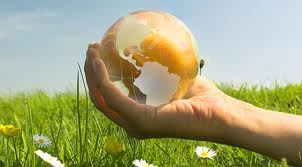The changing wealth of nations: measuring sustainable development in the new millennium

This book released recently by the Wotld Bank contends that most countries are relatively highly dependent on natural capital initially, and the ones that progress most successfully are those that manage their assets for the long term and reinvest in human and social capital as well as in building strong institutions and systems of governance.
The World Bank has released a book titled "The Changing Wealth of Nations: Measuring Sustainable Development in the New Millennium," which contends that most countries are relatively highly dependent on natural capital initially, and the ones that progress most successfully are those that manage their assets for the long term and reinvest in human and social capital as well as in building strong institutions and systems of governance. "The Changing Wealth of Nations" is a follow-up publication to the 2006 book "Where is the Wealth of Nations?" The book extends the principles of wealth accounting to include dimensions that go beyond the standard Gross Domestic Product (GDP) calculations undertaken by finance ministries. It presents, for the first time, a set of “wealth accounts” for over 150 countries for 1995, 2000 and 2005, which allow a longer-term assessment of global, regional and country performance in building wealth. The book is part of an initiative by World Bank President Robert B. Zoellick called the Global Partnership for Ecosystems Valuation and Wealth Accounting. It brings together a group of developed and developing countries to test out and implement expanded measures of natural wealth and their inclusion in countries’ national accounts. A key goal is to properly value ecosystem services, such as coastal protection from mangroves and hydrological services from forests.
